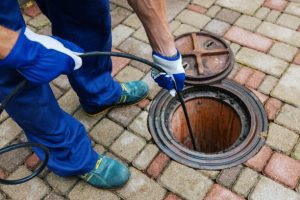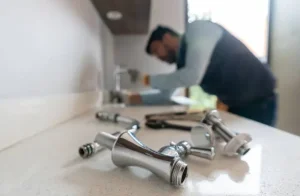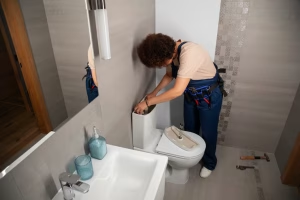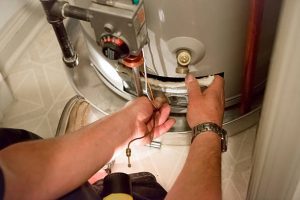Introduction: Why Seasonal Plumbing Maintenance Matters
Plumbing disasters can happen when you least expect them. However, seasonal maintenance can help prevent major issues. Each season brings unique plumbing challenges. Therefore, homeowners must stay prepared throughout the year.
For example, winter can freeze pipes, while summer increases water usage. Because of this, regular checks are essential. Additionally, plumbing damage can lead to high repair costs. Thus, early detection saves money and time.
Seasonal maintenance also improves water efficiency. So, you protect both your home and the environment. Furthermore, a well-maintained system boosts property value. That’s why many professionals recommend seasonal inspections. If you don’t maintain your plumbing, small issues can grow. As a result, you may face emergencies later. But with proper care, you can avoid major disruptions.
Also, these routines can extend your plumbing’s lifespan. In short, seasonal maintenance offers peace of mind. It keeps your home safe, efficient, and disaster-free. Let’s explore the most important tips for each season. You’ll see how easy it is to stay ahead. With a little effort, you’ll avoid big problems later.
Spring: Check for Winter Damage and Start Fresh
Spring is the perfect time to inspect your plumbing system. After a long winter, many issues may go unnoticed. For instance, freezing temperatures can crack outdoor pipes. Therefore, begin by checking all visible pipes. Also, examine faucets and hose bibs for leaks. If you see dripping water, repairs are needed quickly. Additionally, test your sump pump. This step helps prevent basement flooding during spring rains. Because snowmelt increases water flow, your system needs to function well.
Next, flush your water heater to remove sediment. This improves efficiency and extends its life. You should also inspect exposed pipes for rust or corrosion. These signs indicate potential failure. Moreover, clean out gutters and downspouts. Blockages can redirect water toward your foundation. That’s why gutter cleaning matters in plumbing maintenance. Finally, check water pressure throughout your home. Low pressure may signal hidden leaks. Address issues promptly to avoid higher utility bills. By following these steps in spring, you prepare for warmer months ahead. So, your plumbing will stay in top condition year-round.
Summer: Prepare for Increased Usage and Outdoor Needs
Summer brings more household activity, which affects your plumbing. As families host guests or use sprinklers, demand increases. Therefore, you must ensure your system can handle it. Begin by checking sprinkler systems for leaks or clogs. Faulty sprinklers waste water and raise bills. Also, inspect outdoor faucets and hoses. Replace damaged components to avoid water loss. Moreover, look at your washing machine hoses.
Summer laundry loads tend to rise, straining old hoses. That’s why experts recommend replacing rubber hoses every five years. Additionally, check your water heater settings. Warmer weather may allow for lower temperature settings. As a result, you save energy and reduce costs. Next, clear out slow drains with non-corrosive cleaners. Clogs worsen with higher water usage. Furthermore, ensure your sewer line is clear.
Roots grow rapidly in summer and may invade pipes. So, scheduling a professional inspection is wise. Don’t forget to test outdoor drainage. Heavy storms can overwhelm blocked drains. With these steps, your plumbing will perform reliably all summer. Therefore, you’ll enjoy the season without surprises.
Fall: Get Ready for Cold Weather Conditions
Fall is the season to prepare for freezing weather. Therefore, taking preventive steps now avoids winter disasters later. First, drain and disconnect all outdoor hoses. If left connected, water can freeze and crack pipes. Also, shut off exterior faucets and cover them. These measures prevent cold air from entering your plumbing system. Moreover, inspect your water heater for efficiency. Cold weather increases hot water use, so maintenance is essential.
Next, insulate exposed pipes in crawl spaces and basements. Foam insulation sleeves are inexpensive and effective. Additionally, check your home’s main shutoff valve. Make sure it works properly in case of emergencies. If it’s stuck or leaking, replace it immediately. You should also clean gutters and downspouts again. Falling leaves create blockages that cause water overflow. Overflow can lead to foundation damage. Furthermore, test your sump pump one last time. Heavy autumn rains can stress your system.
Therefore, staying ahead ensures your home stays dry. Finally, schedule a professional inspection. A plumber can detect issues you might overlook. So, fall maintenance protects your home before winter begins.
Winter: Protect Pipes from Freezing and Bursting
Winter can be the most damaging season for plumbing. That’s why you need a solid protection plan. Begin by keeping your home’s temperature above 55°F. Even during vacations, this prevents pipe freezing. Also, open cabinet doors under sinks. This allows warm air to circulate around the pipes. Moreover, let faucets drip slightly during cold nights. Flowing water reduces pressure buildup. Therefore, this helps prevent pipe bursts.
Next, double-check your pipe insulation. Foam tubing and heat tape work well in colder areas. Additionally, seal gaps in windows and doors near plumbing. Cold drafts can lower indoor temperatures fast. If a pipe freezes, shut off the main water valve. Then, apply heat with a space heater or warm towels. Never use open flames, as they’re dangerous. Furthermore, monitor your water heater closely. Cold weather makes it work harder. So, schedule a maintenance check in early winter.
Lastly, know where your main shutoff is located. Quick action can limit damage during emergencies. With these precautions, your plumbing system will survive the cold. You’ll prevent stress, damage, and costly repairs.
Conclusion: Stay Ahead with Seasonal Plumbing Care
Seasonal plumbing maintenance keeps your home safe and efficient year-round. Because each season poses unique risks, timely care is crucial. Fortunately, the tasks are simple but highly effective. From spring inspections to winter pipe protection, every step matters. That’s why creating a seasonal checklist is helpful. By following it, you prevent damage before it starts.
In addition, maintenance saves money on emergency repairs. You also avoid water waste and reduce your bills. Plus, your system lasts longer when it’s cared for regularly. Homeowners who act early experience fewer plumbing surprises. Therefore, regular checks build peace of mind. Moreover, professional inspections catch hidden issues.
Working with an expert ensures nothing gets missed. If you ever feel unsure, call a licensed plumber. Their advice can make all the difference. In conclusion, prevention is always better than repair. So, commit to seasonal maintenance and protect your investment. You’ll enjoy a safer, more efficient home throughout the year.
Interested in reading about Common Plumbing Myths That Cost You Money?





